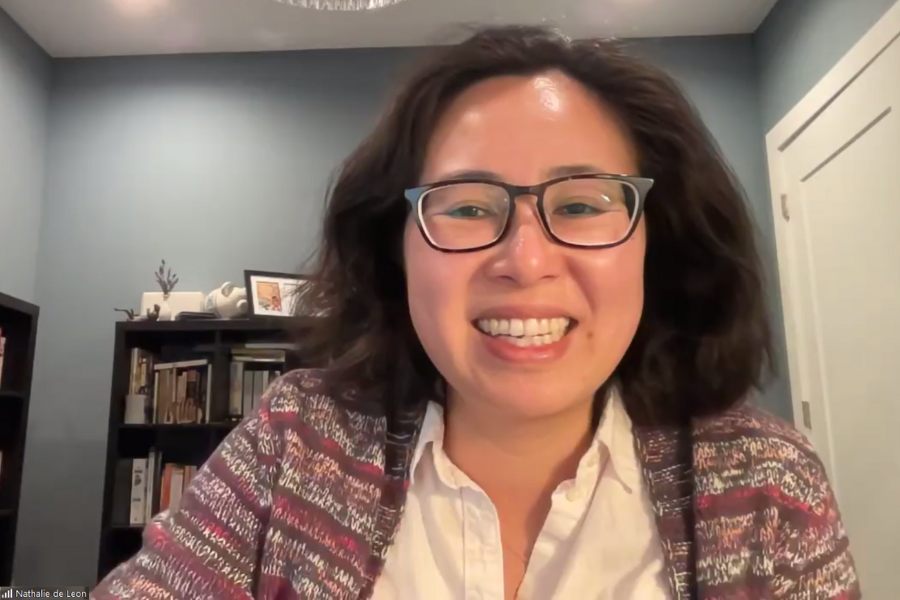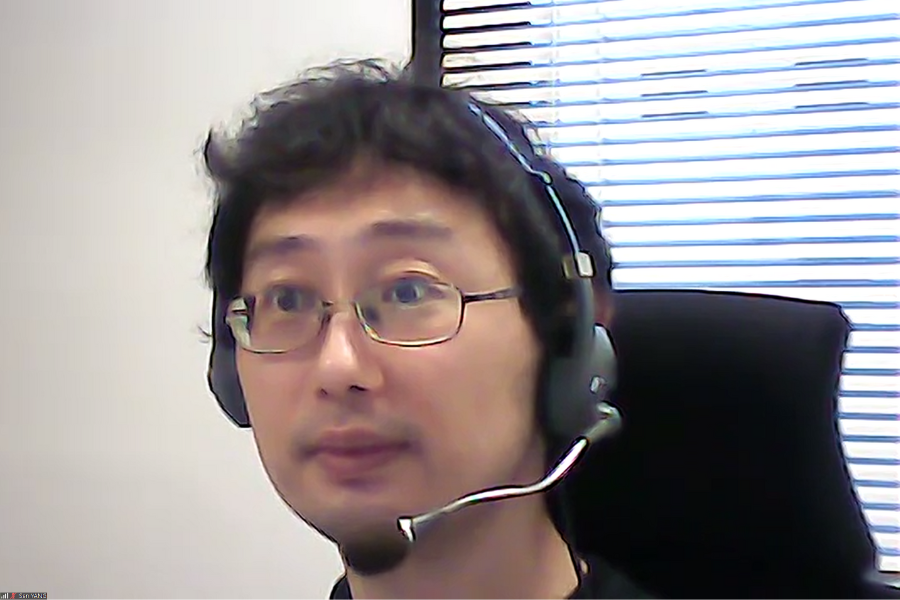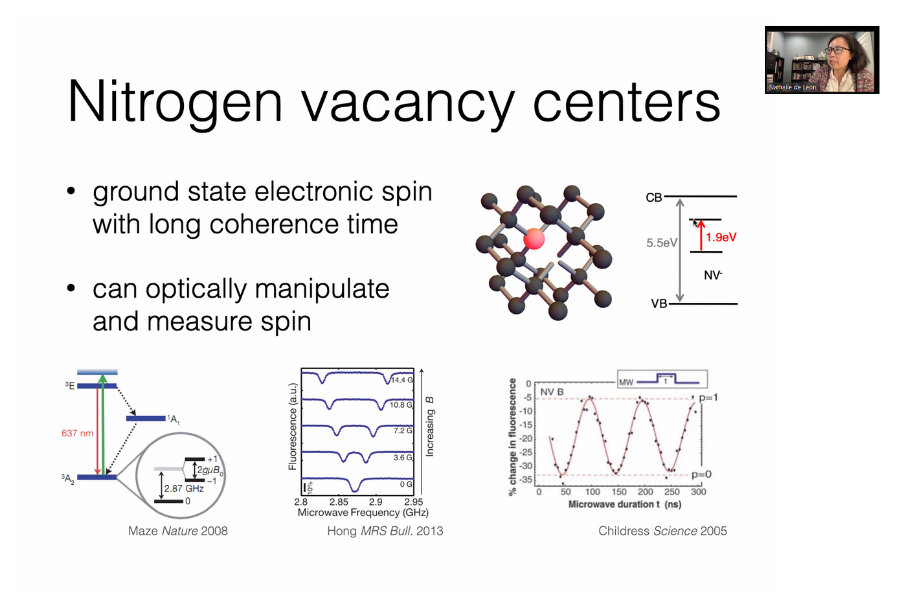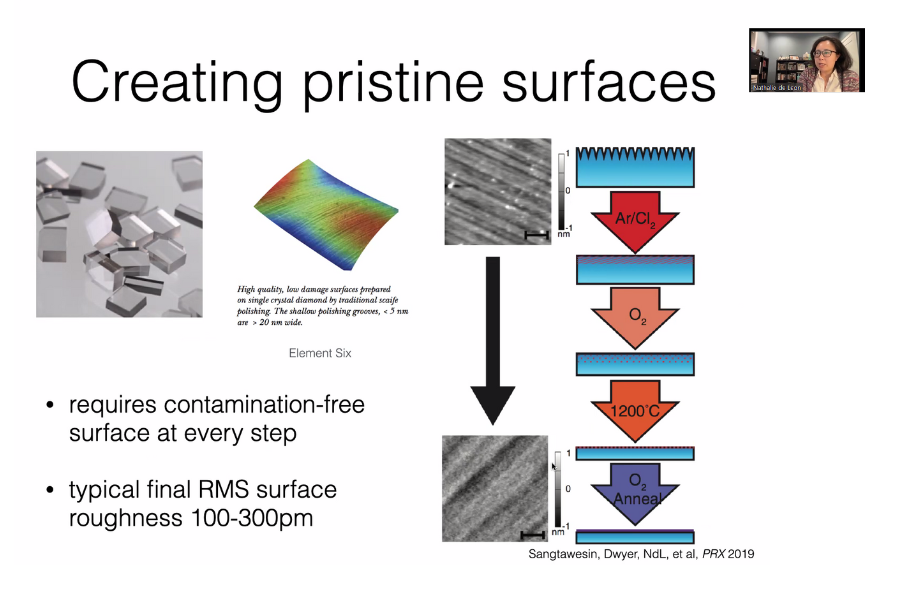New Platforms for Quantum Sensing and Quantum Computing
Abstract
The nitrogen vacancy (NV) center in diamond exhibits spin-dependent fluorescence and long spin coherence times under ambient conditions, enabling applications in quantum information processing and sensing. NV centers near the surface can have strong interactions with external materials and spins, enabling new forms of nanoscale spectroscopy. However, NV spin coherence degrades within 100 nanometers of the surface, suggesting that diamond surfaces are plagued with ubiquitous defects. The speaker will describe her research group’s recent efforts to correlate direct materials characterization with single spin measurements to devise methods to stabilize highly coherent NV centers within nanometers of the surface. They deploy these coherent shallow NV centers for a new nanoscale sensing technique, whereby they use covariance measurements of two or more NV centers to measure two-point magnetic field correlators. The speaker will also discuss steps towards controlling diamond surface chemistry to develop NV centers as a platform for nanoscale NMR.
The speaker’s approach for correlating surface spectroscopy techniques with single qubit measurements to realize directed improvements is generally applicable to many systems. Separately, the speaker will describe their recent efforts to tackle noise and microwave losses in superconducting qubits. Building large, useful quantum systems based on transmon qubits will require significant improvements in qubit relaxation and coherence times, which are orders of magnitude shorter than limits imposed by bulk properties of the constituent materials. This indicates that loss likely originates from uncontrolled surfaces, interfaces, and contaminants. Previous efforts to improve qubit lifetimes have focused primarily on designs that minimize contributions from surfaces. However, significant improvements in the lifetime of planar transmon qubits have remained elusive for several years. The speaker’s research group has recently fabricated planar transmon qubits that have both lifetimes and coherence times exceeding 0.3 milliseconds by replacing niobium with tantalum in the device. Following this discovery, they have parametrized the remaining sources of loss in state-of-the-art devices using systematic measurements of the dependence of loss on temperature, power, and geometry. This parametrization, complemented by direct materials characterization, allows for rational, directed improvement of superconducting qubits.
About the Speaker
Prof. Nathalie DE LEON received her BS in Chemistry from Stanford University in 2004 and her PhD in Chemical Physics from Harvard University in 2011. She then worked as a Center for Integrated Quantum Materials and Element Six Postdoctoral Fellow at Harvard. In 2016, she joined the faculty of Princeton University as an Assistant Professor in the Department of Electrical and Computer Engineering and is currently an Associate Professor there.
Prof. De Leon’s research is focused on building quantum technologies with solid state defects and new material systems for superconducting qubits. She is currently the Materials Thrust Leader of the Co-design Center for Quantum Advantage, a National Quantum Information Science Center under the US Department of Energy.
Prof. De Leon is the recipient of 2016 US Air Force Office of Scientific Research Young Investigator Award and 2017 Sloan Research Fellowship. In 2018, she received the US National Science Foundation’s Faculty Early Career Development Program Award, the US Defense Advanced Research Projects Agency’s Young Faculty Award, and the US Department of Energy’s Early Career Award. In 2023, she was awarded the Rolf Landauer and Charles H. Bennett Award in Quantum Computing by the American Physical Society for her substantial contributions to the field of experimental quantum information science.
For Attendees' Attention
This talk will be held online via Zoom. To attend, please join the Zoom meeting at https://hkust.zoom.us/j/92503111371 (Meeting ID: 925 0311 1371 / Passcode: 475970).
About the Center
For more information, please refer to the center website at https://iascqt.hkust.edu.hk/.






